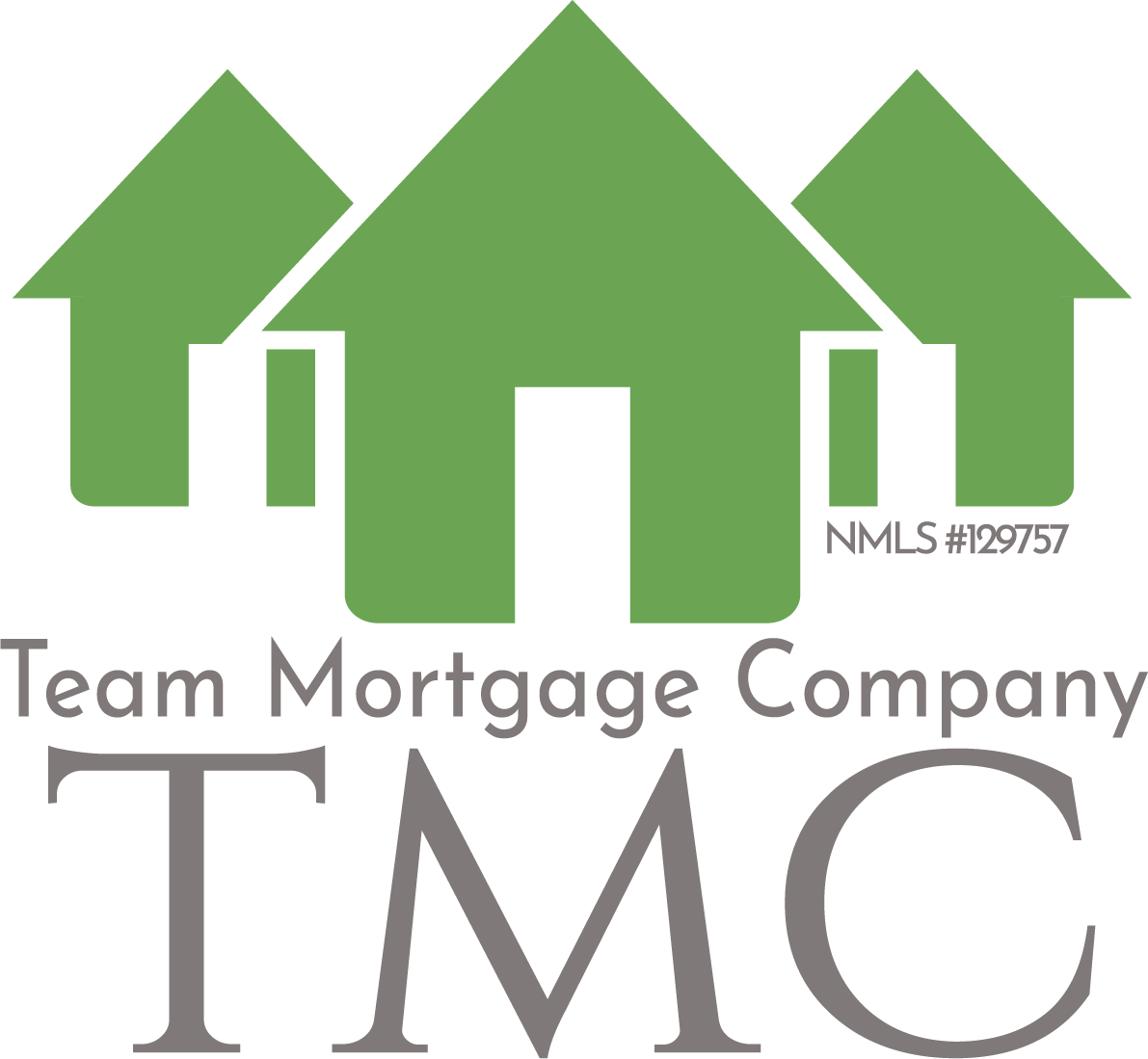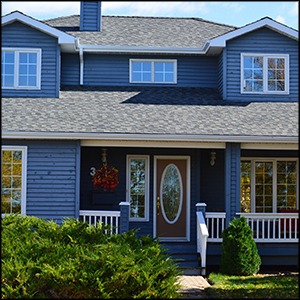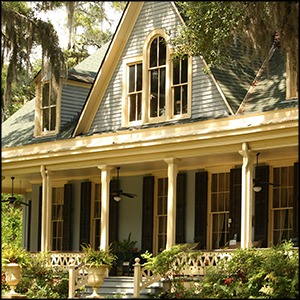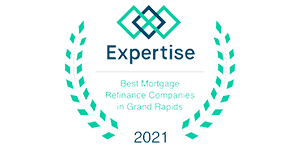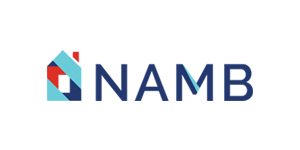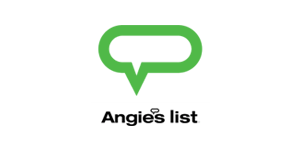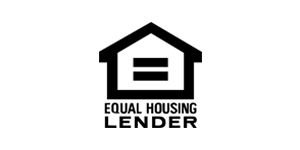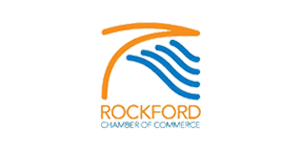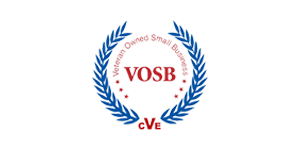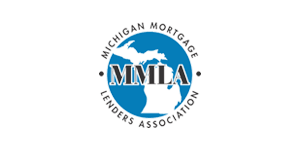New or Second Home Purchase Mortgages
The lending experts at Team Mortgage Company in Grand Rapids want you to enjoy the many benefits of owning your own home. In addition to the satisfaction of being a homeowner, you can build equity, enjoy tax deductions, say good-bye to your landlord and take control of your living environment.
Whether you are a first-time homebuyer, a renter, purchasing a new or second home or looking for investment property, we have an assortment of tools and loan programs available to meet your individual financing needs. Our easy-to-navigate website can answer many of your questions, or contact us by phone today.
Refinance
The mortgage experts at Team Mortgage Company can help you determine if now is the right time for you to refinance.Our professional lenders can help you to lower your monthly payments or reduce the time it takes to pay off your loan.
There are numerous benefits to refinancing in today’s market. Primarily, you will be able to lower your rate and reduce your monthly payments and interest costs. In addition, you may be eligible to convert your adjustable-rate mortgage (ARM) to a more secure fixed-rate mortgage. You might also qualify to combine your first and second mortgages into one mortgage at a lower rate. Finally, refinancing may allow you to pay off installment debts and credit cards if you qualify. LEARN MORE >
[Back to top]
Reverse Mortgage Loans
A reverse mortgage loan is a home loan — used for any purpose — allowing seniors age 62 and above to access the cash equity they have built up in their home.Team Mortgage Company’s residential reverse mortgage loan specialists can help you understand how these loans can benefit you and your family.
There are several different reverse mortgage programs. Fannie Mae Home Keeper®, Jumbo Cash-Out Loan, and the HUD-insured Home Equity Conversion Mortgage (HECM) are three of the most common programs. As demand increases, more reverse mortgage programs from different organizations will become available. LEARN MORE >
[Back to top]
Grand Rapids Mortgage Loan Programs
When searching for your best option for financing a new purchase, refinancing, or remodeling your home, you will be faced with numerous options and a long list of different programs.
Team Mortgage Company will help you to understand all of your available options so that you can be confident in your final decision, and as such we’ve highlighted several of the most common programs offered today. Characteristics of each loan program are unique, so consult one of our expert Grand Rapids mortgage professionals for more information and details on each program available to you. LEARN MORE >
FHA & VA Loans
Team Mortgage Company can assist you in understanding a number of quality mortgage programs offered by the federal government to help people with lower incomes realize the American dream of home ownership.
Our Grand Rapids mortgage company specializes in helping Michigan individuals and families navigate the many ins and outs of these complicated, yet very effective programs. Our professional and knowledgeable staff can answer your questions and make sure that you on the right track when applying for these specialized and often confusing loans. LEARN MORE >
FHA / 203(k) Construction Loans
If you are thinking about buying a house, remodeling or repairing the house you have, then it is in your best interest to talk with our professional residential mortgage specialists to learn about the options available with an FHA 203k construction loan. This excellent loan program works well in today’s market but few individuals actually understand the benefits it offers.
This specialized loan allows you to buy a house and fix it up without using money out of your pocket and basing the loan amount on a future value after the improvements have been completed. LEARN MORE >
Conventional Rural Development Loans
The mortgage professionals at Team Mortgage Company can walk you through the sometimes confusing process involved with securing a conventional rural development loan. USDA rural development loans provide low-cost insured home mortgage loans that offer a variety of options. A USDA mortgage loan might be right for you if you want to purchase a home with no down payment.
Our Grand Rapids rural development loan experts can walk you through your options and help you to determine whether you qualify for this specialized loan. If you are unsure about your credit rating, or have concerns about a down payment, USDA rural development loans can give you piece of mind with their low closing costs and flexible payment options. LEARN MORE >
Zero Down Mortgage Loans
The professional staff at Team Mortgage Company knows that the cash required for a down payment and closing costs can often be a deterrent to new homebuyers. Fortunately, our expert lenders can provide you with alternative options for a mortgage loan requiring zero down at closing.
A Zero Down loan can help you finance your new home even when you don’t have enough cash to pay your closing costs and make a down payment. It is also used to avoid paying Private Mortgage Insurance (PMI) costs. LEARN MORE >
Refinance
The mortgage experts at Team Mortgage Company can help you determine if now is the right time for you to refinance. Our professional lenders will work with you to lower your monthly payments or reduce the time it takes to pay off your loan.
There are numerous benefits to refinancing in today’s market. Primarily, you will be able to lower your rate and reduce your monthly payments and interest costs. In addition, you may be eligible to convert your adjustable-rate mortgage (ARM) to a more secure fixed-rate mortgage. You might also qualify to combine your first and second mortgages into one mortgage at a lower rate. Finally, refinancing may allow you to pay off installment debts and credit cards if you qualify.
The Benefits of Refinancing with us:
- Low rates
- Easy online application
- All types of mortgage programs
- Guidance and advice from an experienced loan professional
Most Popular Refinancing Programs
The Home Affordable Refinance Program provides refinance opportunities to borrowers with existing Fannie Mae loans who have demonstrated an acceptable payment history on their mortgage, but have been unable to refinance to obtain a lower payment or move to a more stable product. DU Refi Plus and Refi Plus offer lenders both DU and manual underwriting options for Fannie Mae to Fannie Mae refinances.
Home Affordable Refinance Program (HARP)
If you are not behind on your mortgage payments but have been unable to get traditional refinancing because your home’s value has decreased, you may be eligible to refinance through MHA’s Home Affordable Refinance Program (HARP). HARP is designed to help you get a new, more affordable and more stable mortgage. HARP refinance loans require a loan application and underwriting process, and refinance fees will apply.
You may be eligible for HARP if you meet all of the following criteria:
- The mortgage must be owned or guaranteed by Freddie Mac or Fannie Mae.
- The mortgage must have been sold to Fannie Mae or Freddie Mac on or before May 31, 2009.
- The mortgage cannot have been refinanced under HARP previously unless it is a Fannie Mae loan that was refinanced under HARP from March-May, 2009.
- The current loan-to-value (LTV) ratio must be greater than 80%.
- The borrower must be current on the mortgage at the time of the refinance, with a good payment history in the past 12 months.
If your loan is owned by Freddie Mac, you may check your potential eligibility for HARP here. This specific Program ends on December 31, 2013.
Three simple steps to your HARP Refinance:
- Determine whether your mortgage is owned or guaranteed by Fannie Mae or Freddie Mac
- Contact Team Mortgage Company to inquire about HARP.
- Compare rates and costs to ensure the best refinance terms
DU Refi Plus
Desktop Underwriter Refi Plus is a new program offered by Fannie Mae that can make refinancing faster and easier for many homeowners. This streamlined refinancing program offerslooser lending restrictions that can mean lower monthly payments for borrowers qualifying for the Fannie Mae refinancing program.
DU Refi Plus, as part of the Making Home Affordable program the government recently introduced to improve the housing market. Homeowners can obtain refinancing through DU Refi Plus even if they have lower credit scores and less income documentation. In some cases, the DU Refi will waive the requirement for an appraisal.
Under DU Refi Plus, our expert lenders will identify existing Fannie Mae loans and check their performance history. Homeowners can use DU Refi Plus to refinance up 105 percent of their home’s value and can provide only one pay stub for income documentation. In some instances, the Fannie Mae refinancing program will approve homeowners with credit scores under 580, the current minimum.
DU Refi Plus is designed to help financially struggling homeowners meet their mortgage payments to keep their homes by refinancing their mortgage and lowering their monthly payments. All home mortgages that Fannie Mae now owns or guarantees are eligible for the streamlined refinancing.
DU Refi Plus Major Features & Benefits:
- The Fannie Mae streamlined refinancing is open to condos, co-ops, PUDs, manufactured homes, and other common property types.
- Second homes can qualify for Du Refi Plus if they are just one unit, but one to four unit primary residences and investment properties are eligible for the DU refinancing.
- Loan-to-values of the property can go up to 105 percent, and there is no maximum limit on combined-loan-to-values. Subordinate financing is prohibited, which means second mortgages must be re-subordinated.
- If the loan-to-value is 80 percent or less, the homeowner can have a credit score below 580.
- If the mortgage has an adjustable rate, the minimum credit score of 680 is waived when the loan-to-value ratio falls below 80 percent.
- Homes previously subjected to a 75% LTV/CLTV/HCLTV are now eligible for up to 80% LTV/CLTV/HCLTV. Eligible properties include two-unit primary residences with high-balance loans, and three- to four-unit primary residences, investment properties and second home co-ops).
- Salaried workers need just one pay stub and verbal verification of employment.
- Commissioned or self-employed borrowers should submit one year of federal tax returns.
- In some circumstances the homeowner may not need to pay for an appraisal.
Refinancing Borrower Benefits
These refinance options are intended to assist borrowers by providing a benefit that seeks to ensure long-term homeownership sustainability.
The lender must represent and warrant that the borrower is receiving a benefit in the form of either:
- A reduced monthly mortgage principal and interest (P&I) payment
- A reduced interest rate
- A reduced amortization term, or
- A more stable mortgage product; movement from an ARM to a fixed-rate
Lenders may solicit borrowers with mortgages owned or securitized by Fannie Mae for a refinance, provided:
- The lender simultaneously applies the same advertising and solicitation activities to all mortgages owned, or securitized by either government-sponsored enterprise (GSE).
- The lender must use specific language in any communications.
- The LTV ratio of the loans is greater than 80%.
Reverse Mortgage Loans
A reverse mortgage loan is a home loan — used for any purpose — allowing seniors age 62 and above to access the cash equity they have built up in their home. Team Mortgage Company’s residential reverse mortgage loan specialists can help you understand how these loans can benefit you and your family.
There are several different reverse mortgage loan products. Fannie Mae Home Keeper®, Jumbo Cash-Out Loan, and the HUD-insured Home Equity Conversion Mortgage (HECM) are three of the most common. As demand increases, more reverse mortgage loan products from different organizations will become available.
This type of loan is referred to as a reverse mortgage loan because you borrow money from a lender, but the lender makes monthly payments to you, rather than you making monthly payments to the lender. In addition, all interest is paid at the end of the loan, rather than in the beginning.
Reverse Mortgage Loans offer the following advantages:
- Strengthen your personal and financial independence
- Help pay for medical and preventative health care costs or other needs
- You won’t lose your home in foreclosure if you pay your property taxes and insurance,
and maintain the property according to the loan terms - Loan is paid off when the home is sold by you or your heirs, or if all borrowers move out
- In Many Cases, you can still keep your Medicare or Social Security benefits,
but please consult with your benefits specialist first. - Loan can be used as a credit line that you can draw upon when needed
- You will be able to receive all of your cash right away
- Get the best of both— Receive cash now and have a balance in reserve to use as credit
- No Income Needed: Homeowner does not need to work and is not qualified based on income
As the homeowner receives monthly cash income, the loan balance increases. In the following twelve-month example, the homeowner begins with a debt-free home. As the homeowner receives cash, the mortgage grows. By the end of month twelve, the homeowner owes the bank $6,000 plus $232.44 interest. All Reverse Mortgage loans have a variable rate.
Assumptions*
|
Regular monthly advances |
$500 |
|
Annual interest rate |
7.0 % |
|
Monthly interest rate |
.583% (.07 / 12) |
|
Month |
Beginning Balance |
Interest |
Ending Balance |
Cash Disbursement |
|
0 |
0 |
0.00 |
0.00 |
$500.00 |
|
1 |
$500.00 |
$2.92 |
$502.92 |
$500.00 |
|
2 |
$1,002.92 |
$5.85 |
$1,008.77 |
$500.00 |
|
3 |
$1,508.77 |
$8.80 |
$1,517.57 |
$500.00 |
|
4 |
$2,017.57 |
$11.77 |
$2,029.34 |
$500.00 |
|
5 |
$2,529.34 |
$14.75 |
$2,544.09 |
$500.00 |
|
6 |
$3,044.09 |
$17.76 |
$3,061.85 |
$500.00 |
|
7 |
$3,561.85 |
$20.78 |
$3,582.63 |
$500.00 |
|
8 |
$4,082.63 |
$23.82 |
$4,106.44 |
$500.00 |
|
9 |
$4,606.44 |
$26.87 |
$4,633.31 |
$500.00 |
|
10 |
$5,133.31 |
$29.94 |
$5,163.26 |
$500.00 |
|
11 |
$5,663.26 |
$33.04 |
$5,696.29 |
$500.00 |
|
12 |
$6,196.29 |
$36.15 |
$6,232.44 |
$500.00 |
*Many criteria are considered when determining the reverse mortgage loan amount, interest rate, etc. These materials are not from HUD or FHA and were not approved by HUD or a government agency.
For more information about reverse mortgage loans and to see if you qualify to take advantage of these popular products, contact Team Mortgage Company today or call us at 616.974.9710.
Grand Rapids Mortgage Loan Programs
When searching for your best option for financing a new purchase, refinancing, or remodeling your home, you will be faced with numerous options and a long list of different programs.
Team Mortgage Company will help you to understand all of your available options so that you can be confident in your final decision, and as such we’ve highlighted several of the most common programs offered today. Characteristics of each loan program are unique, so consult one of our expert Grand Rapids mortgage professionals for more information and details on each program available to you.
To help determine the best loan program for you, consider the following:
- How important is payment certainty? If knowing that your payment will be the same every month is important, consider a fixed-rate mortgage.
- How important is rapid equity buildup? If rapid equity buildup is a factor, consider a shorter amortization period, such as a 15-year, fixed-rate mortgage.
- Do you anticipate increasing or stable income? If income growth is expected, you can take advantage of an ARM’s lower start rate or a temporary buydown.
- Other factors to consider include:
- ability to qualify at market rates for loan amount selected
- anticipated term of occupancy
- possibility of significant rate changes
- existence of up-front costs
|
Loan Programs |
Characteristics |
|
15- and 30-Year Fixed-Rate Mortgages |
|
|
Fixed-Rate Balloons |
|
|
Fixed-Rate with Temporary Buydown |
|
|
Interest-Only Mortgages |
|
|
Adjustable-Rate Mortgages (ARMs) |
|
FHA & VA Loans
Team Mortgage Company can assist you in understanding a number of quality mortgage programs offered by the federal government to help people with lower incomes realize the American dream of home ownership.
Our Grand Rapids Mortgage company specializes in helping Michigan individuals and families navigate the many ins and outs of these complicated, yet very effective programs. Our professional and knowledgable staff can answer your questions and make sure that you on the right track when applying for these specialized and often confusing loans.
For first-time homebuyers and active or veteran military personnel, an FHA (also known as a 203K construction loan) or VA loan can be a great mortgage solution. There are some differences between the two programs, but their main purpose is very similar — to provide those with lower incomes the opportunity to enjoy home ownership.
One of these programs is administered by the Federal Housing Administration (FHA) and the other is governed by the Veterans Administration (VA).
A comparison of the two programs can be seen in the table below:
|
Federal Housing Administration (FHA) |
Veterans Administration (VA) |
|
Can qualify without high income |
Can Qualify without high income |
|
Low down payment (typically 3.5%) |
Down payment as low as 0% |
|
Interest rates typically below standard market rates |
Interest rates typically below standard market rates |
|
Requires payment of upfront Mortgage Insurance |
Requires payment of upfront Mortgage Insurance |
|
Options for seller to pay points or closing costs |
Options for seller to pay points or closing costs |
|
Cash gift allowed for down payment |
Cash gift allowed for down payment |
|
Availability of 15 or 30 year term |
Availability of 15 or 30 year term |
|
Fixed or adjustable rates available |
Fixed rate only |
|
MIP can occasionally be financed at close |
For more information about FHA or VA loans and to see if you are qualified to take advantage of these specialized loans, contact Team Mortgage Company today or call us at 616.974.9710.
FHA Home Improvement Loans
If you are thinking about buying a house, remodeling or repairing the house you have, then it is in your best interest to talk with our professional residential mortgage specialists to learn about the options available with an FHA Home Improvement loans — also known as 203K Construction loans. This excellent loan program works well in today’s market but few individuals actually understand the benefits it offers.
This specialized loan allows you to buy a house and fix it up without using money out of your pocket and basing the loan amount on a future value after the improvements have been completed.
The FHA Home Improvement Loan is the government’s primary program for the rehabilitation and repair of single family properties. As such, it is an important tool for community and neighborhood revitalization and for expanding homeownership opportunities. Since these are the primary goals of HUD, the Department believes that this is an important program and we intend to continue to strongly support the program and the lenders that participate in it.
How the FHA Home Improvement Loan Is Different
Most mortgage financing plans provide only permanent financing. That is, the lender will not usually close the loan and release mortgage proceeds unless the condition and value of the property provides adequate loan security. When rehabilitation is involved, this means that a lender typically requires the improvements to be finished before a long-term mortgage is made.
When a homebuyer wants to purchase a house in need of repair or modernization, the homebuyer usually has to obtain financing first to purchase the dwelling; additional financing to do the rehabilitation construction; and a permanent mortgage when the work is completed to pay off the interim loans with a permanent mortgage. Often the interim financing (acquisition and construction loans) involves relatively high interest rates and short amortization periods.
The FHA Home Improvement Loan program was designed to address this situation. The borrower can get just one mortgage loan, at a long-term fixed (or adjustable) rate, to finance both the acquisition and the rehabilitation of the property. To provide funds for the rehabilitation, the mortgage amount is based on the projected value of the property with the work completed, taking into account the cost of the work. To minimize the risk to the mortgage lender, the mortgage loan (the maximum allowable amount) is eligible for endorsement by HUD as soon as the mortgage proceeds are disbursed and a rehabilitation escrow account is established. At this point the lender has a fully-insured mortgage loan.
Eligible Property
To be eligible, the property must be a one to four family dwelling that has been completed for at least one year. The number of units on the site must be acceptable according to the provisions of local zoning requirements. All newly constructed units must be attached to the existing dwelling. Cooperative units are not eligible.
Homes that have been demolished, or will be razed as part of the rehabilitation work, are eligible provided some of the existing foundation system remains in place.
In addition to typical home rehabilitation projects, this program can be used to convert a one-family dwelling to a two, three, or four family dwelling. An existing multi-unit dwelling could be decreased to a one- to four-family unit.
An existing house (or modular unit) on another site can be moved onto the mortgaged property; however, release of loan proceeds for the existing structure on the non-mortgaged property is not allowed until the new foundation has been properly inspected and the dwelling has been properly placed and secured to the new foundation.
A FHA Home Improvement Loan may originate on a ‘mixed use’ residential property if:
- The property has no greater than 25% (one-story building), 33% (three-story building) and 49% (two-story building) of its floor area used for commercial (storefront) purposes
- The commercial use will not affect the residential property occupant’s health and safety
- The rehabilitation funds will only be used for the residential functions of the dwelling and areas used to access the residential part of the property
There are two types of FHA Home Improvement loans available, Streamline and Fully Funded.
Streamline
This loan is less complex and should be used for improvements and repairs up to $35,000, to:
- Finish your basement
- Remodel your kitchen or baths
- Add a new furnace and air conditioning system
- Make minor electrical and plumbing repairs
- Connect to a public water & sewer system
- Build or repair a deck
- Install new flooring
- Paint or repaint interior or exterior walls
- Install new cabinets or countertops
- Add or replace exterior siding
- Repair or replace your roof
- Buy a new stove, refrigerator, microwave, dishwasher, hood vent or washer & dryer
As an example: Jon and Jane want to buy a house for 200,000. The house needs a new furnace, a new roof and a deck that will altogether cost $23,000. With their streamline FHA Home Improvement loan, they will need a down payment of 3.5% of $223,000 (the purchase price plus the cost of repairs). The loan amount will be $215,195 with a down payment of $7805. Fifty percent of the funds needed to complete the project are released when the loan closes and the other 50% are held in escrow and disbursed upon completion.
A refinance would work in a similar fashion. Let’s say Jim owns a home that is valued at $300,000. Jim owes $275,000 and wants to finish the basement at a cost of $35,000. Jim can get a loan for up to 96.5% of $335,000 to complete this project but since the project is using the maximum amount of $35,000, Jim’s loan amount will be $310,000. This would allow him to complete the project with no out-of-pocket expense.
Fully Funded FHA Home Improvement Loans
This version uses the full potential of the funds for a complete rehab project. As an example, if Jon & Jane decided to buy a 300k home that needed to be completely rehabbed & planned on putting an addition, they would opt for a full FHA Home Improvement loan. Let’s say the project will cost 160k. Provided the future value could be supported, Jon & Jane could have a loan amount for 96.5% of $460k, allowing them to cover nearly the full cost of the remodel.
In today’s real estate market, the FHA Home Improvement loan is a tremendous option. The government wants the housing market to recover and neighborhoods to flourish. While the tidal wave of foreclosures is not predicted to subside for some time, this provides unprecedented opportunity for a buyer with vision. Some of these places need some work, and the FHA Home Improvement loan is ideal for those that have ability to buy but are not cash rich. Coupled with the extension of the tax credit (which is no longer just for first time home buyers), there is major incentive to get off the bench.
Rural Development Loans
The mortgage professionals at Team Mortgage Company can walk you through the sometimes confusing process involved with securing a rural development loan. USDA rural development loans provide low-cost insured home mortgage loans that offer a variety of options. A USDA mortgage loan might be right for you if you want to purchase a home with no down payment.
Our Grand Rapids rural development loan experts can walk you through your options and help you to determine whether you qualify for this specialized loan. If you are unsure about your credit rating, or have concerns about a down payment, USDA rural development loans can give you piece of mind with their low closing costs and flexible payment options.
Currently, there are two rural development loans available:
- USDA Guaranteed Rural Housing Loans
USDA Guaranteed Loans are the most common type of USDA rural development loan and allow for higher income limits and 100% financing for home purchases. USDA Guaranteed Loan applicants may have an income of up to 115% of the median household income for the area. Area income limits for this program can be viewed here. All USDA Guaranteed Loans carry 30 year terms and are set at a fixed rate. - USDA Direct Rural Housing Loans
USDA Direct Housing Loans are less common than USDA Guaranteed Loans and are only available for low and very low income households to obtain home ownership, as defined by the USDA. Very low income is defined as below 50 percent of the area median income (AMI); low income is between 50 and 80 percent of AMI; moderate income is 80 to 100 percent of AMI. Click here to see area income limits for this program.
The mortgage professionals at Team Mortgage Company will guide you through the rural development loan process to determine whether you would benefit from a USDA Rural Development Mortgage.
USDA rural development loans offer many benefits and protections not found with other loans. While these loans are not credit score driven, it is required to have at least a 620 FICO score to obtain an approval through most lenders.
USDA mortgage guidelines are written in a way that provides the borrower the benefit of the doubt that there had been, at some point in their past, circumstances beyond their control, and as long as the borrower has recovered from those circumstances in a reasonable manner, they’re generally going to be credit-eligible for an USDA rural loan mortgage.
A distinct advantage of a USDA Rural Development Loan, as compared to a conforming loan, is great interest rates and low mortgage insurance. The daily USDA mortgage rates are usually comparable to a conforming 30-Year fixed loan.
RD loans require NO down payment. Other loan programs don’t allow this. To be eligible for an USDA Rural Development Loan, your monthly housing costs (mortgage principal and interest, property taxes and insurance) must meet a specified percentage of your gross monthly income (29% ratio).
Your credit background will be fairly considered. At least a 620 FICO credit score is required to obtain an USDA approval through most lenders. You must also have enough income to pay your housing costs plus all additional monthly debt (41% ratio). These ratios can be exceeded somewhat with compensating factors.
Applicants for loans may have an income of up to 115% of the median income for the area. Maximum USDA Guaranteed Loan income limits for your area can be found here. Maximum USDA Direct Loan income limits for your area can be found here. Families must be without adequate housing, but be able to afford the mortgage payments, including taxes and insurance.
The maximum amount for a USDA home loan is determined by:
- Maximum Loan Amount: The is no set maximum loan amount allowed for an USDA Residential Loan. Instead, your debt-to-income ratios will dictate how much home your can afford (29/41 ratios). Additionally, your total household monthly income must be within USDA allowed maximum income limits for your area. Maximum USDA Guaranteed Loan income limits for your area can be found at here.
- Maximum financing: The maximum USDA Rural Loan amount will be 102% of the appraised value of the home (100% plus the 2% USDA rural development loan guarantee fee).
Are you curious about the minimum down payment for an USDA Rural Loan? USDA Mortgage Loans require no down payment and they allow for the closing costs to be included in the loan amount (appraisal permitting).While USDA mortgage guidelines require that the property be Owner Occupied (OO), they do allow you to purchase condos, planned unit developments, manufactured homes and single family residences.
USDA Loan Requirements
To decide if you qualify for an USDA Mortgage Loan, the following will be looked at:
- Your income and your monthly expenses. Standard debt-to-income ratios are 29/41 for USDA Loans. These ratios may be exceeded with compensation factors.
- Your credit history (this is important, but USDA’s credit standards are flexible). A FICO score of 620 or above is required for all loans through most lenders.
- Your overall pattern rather than to individual problems you may have had.
To be eligible for a rural development loan, your monthly housing costs (mortgage principal and interest, property taxes and insurance) must meet a specified percentage of your gross monthly income (29% ratio). Your credit background will be fairly considered. At least a 620 FICO credit score is required to obtain an USDA approval through most lenders.
You must also have enough income to pay your housing costs plus all additional monthly debt (41% ratio). These percentages may be exceeded with compensating factors. Applicants for loans may have an income of up to 115% of the median income for the area. Maximum USDA Loan income limits for your area can be found here. Families must be without adequate housing, but be able to afford the mortgage payments, including taxes and insurance.
All rural development loans are fixed-rate mortgages. In a fixed rate mortgage, your interest rate stays the same during the whole loan period, normally 30 years. The advantage of a fixed-rate mortgage is that you always know exactly how much your monthly payment will be, and you can plan for it.
Rural areas include open country and places with population of 10,000 or less and—under certain conditions—towns and cities. An automated rural area eligibility calculator cab be found here: http://eligibility.sc.egov.usda.gov.
Zero Down Mortgage Loans
The professional staff at Team Mortgage Company knows that the cash required for a down payment and closing costs can often be a deterrent to new homebuyers. Fortunately, our expert lenders can provide you with alternative options for a mortgage loan requiring zero down at closing.
A Zero Down loan can help you finance your new home even when you don’t have enough cash to pay your closing costs and make a down payment.
Zero down programs can allow you to buy your home sooner, instead of waiting to save enough for a down payment. In comparison, Rural Development loans allow you to get one new loan at 102 percent loan-to-value (LTV).
Some zero down programs allow you to borrow 3 to 6 percent of the purchase price to pay your closing costs. Ask your loan officer if you qualify for any of these programs.
PMI is an additional charge you pay if you make less than a 20 percent down payment. This insurance policy protects the lender in the event of a payment default or foreclosure, and the loan is not paid off in full.
For more information about zero down mortgage loans or to see if you are qualified to take advantage of these specialized loans, contact Team Mortgage Company today or call us at 616.974.9710.
